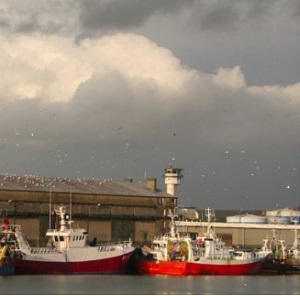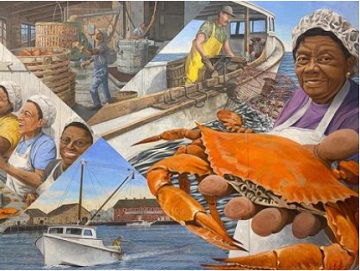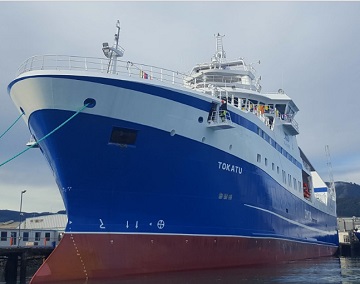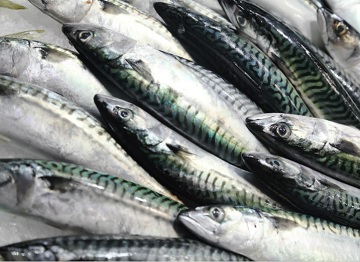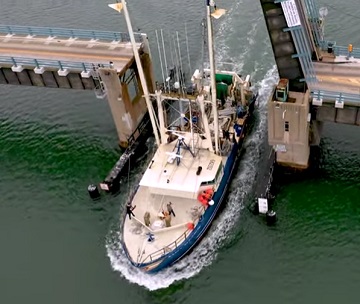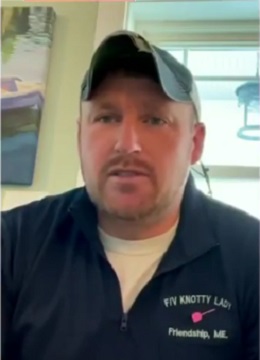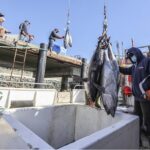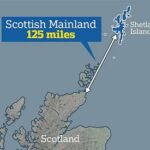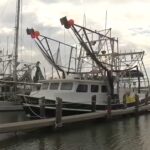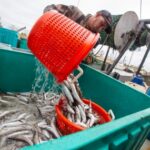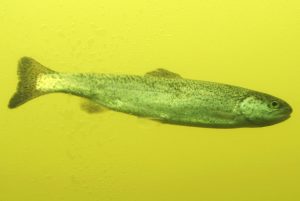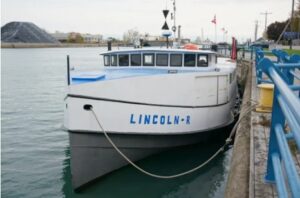If there were any fans of offshore wind energy proposals in the Wildwoods Convention Center on Thursday afternoon, they kept quiet during a congressional hearing on the issue, led by U.S. Rep. Jeff Van Drew, R-2nd. Over about 2½ hours, speakers dove into what they see as problems with the proposal for wind turbines off the coast of New Jersey and other Eastern states, and with the state and federal approval process they say favors the wind developers. The hearing was billed as “An Examination into Offshore Wind Industrialization.” After opening statements, which were each deeply critical of the wind power plans, the Congress members heard from environmental advocates, an attorney representing Cape May County, a fishing industry member and others. They did not hear from Ørsted, the Danish energy company that owns Ocean Wind 1, the offshore wind power project expected to be the first in operation off New Jersey. Photos, Video, >click to read< 07:43
Monthly Archives: March 2023
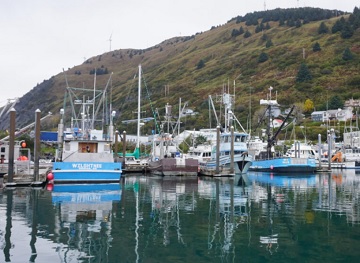
Kodiak lawmakers outline fishery-related accomplishments and ambitions
A bill that passed the Alaska Legislature last year has already started to benefit the fishing industry, and more fishing-specific bills are in the works this year, state lawmakers representing Kodiak said on Friday at an industry conference. Alaska Senate President Gary Stevens, a Republican leading a bipartisan majority, told the audience at ComFish Alaska that he is particularly proud of a bill he sponsored that expands allowable tax credits for investments in equipment to process seafood beyond salmon and herring. The bill expanded allowable seafood-production tax credits to investments in equipment for pollock, Pacific cod and sablefish, also known as block cod. Previously, only salmon- or herring-related investments were eligible for those credits. >click to read< 08:55
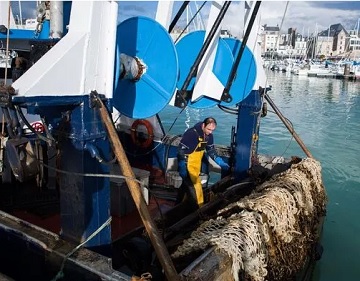
British fishermen face £199 fee to export catch to EU in post-Brexit blow
Fishermen in Pembrokeshire are facing a £199 fee to export their products to the EU. The fee is being introduced by the County Council’s Cabinet to allow the Port Health Team to issue ECHs. The certificates are mandatory for all companies in the UK exporting or moving live animal products to the EU post-Brexit. A spokesperson from Pembrokeshire Cabinet said: “As a result of Brexit, fishery products exported to the European Union from the United Kingdom now require an EHC, as laid out in the Official Control Regulations 2017/625.” Former Prime Minister Boris Johnson had promised UK fishermen they would be fully protected in the event of any post-Brexit trade deal with the European Union, which was signed on December 30, 2020. >click to read< 07:59
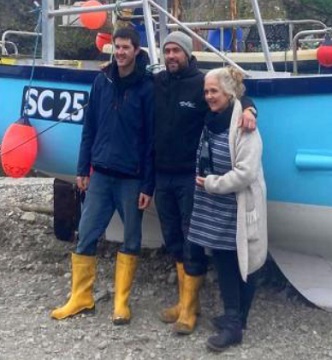
Fishermen sail new boat into harbour four months after devastating sinking
Less than four months after their livelihood sunk to the bottom of the sea, skipper Brett Jose and crew member Callum Hardwick sailed into Cadgwith on a new fishing boat. Amid the celebrations, present in the minds of all watching was the day of November 12 last year, when the Lizard Lifeboat made one of their most difficult rescues in recent memory, saving two of their own crew after their fishing boat sunk. With no time to issue a mayday call, an EPIRB (Emergency Position Indicating Radio Beacon) signal thankfully alerted Falmouth Coastguard, who were then able to notify the Lizard Lifeboat. Now Brett and Callum have sailed their new boat, Sante Fe, into Cadgwith on St Piran’s Day no less, to cheers and applause from those watching in the close-knit community. >click to read< 15:15
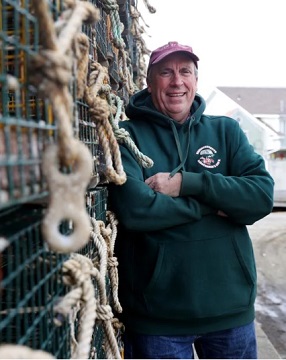
California sustainability group told people to stop eating lobster, so Massachusetts lobstermen file suit
Standing on a dock in his hometown of Gloucester, Mass., lobsterman Arthur Sawyer looked out at the peaceful, calm waters off of Cape Ann. Sawyer, president of the Massachusetts Lobstermen’s Association, and three other Bay State lobster fishers filed a class action lawsuit earlier this month against Monterey Bay Aquarium and the international Marine Stewardship Council, groups that consider lobstering a major risk to North Atlantic right whales and, hence, people shouldn’t buy lobsters anymore. “They have gone overboard targeting Massachusetts when we’ve been doing everything,” Sawyer told the Herald. “We have 100 percent closure right now. There is no place safer for right whales right now on the east coast than in Massachusetts waters.” >click to read< 11:12
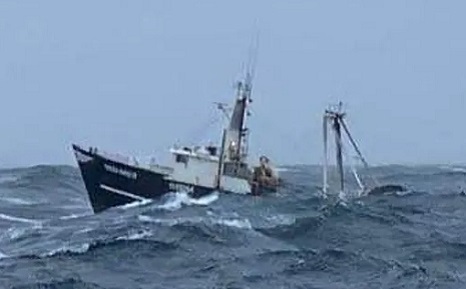
I’m a fishing boat captain. Green energy companies, government want to put me out of business
Offshore wind energy might be killing whales, but there’s no question it’s killing American fishermen. I’ve been a fishing boat captain for over 20 years. I live on an island in Maine and sail out of New Bedford, Mass. My brothers and cousins are lobstermen. Fishing is the trade our family has plied for generations. We’re proud to practice the founding craft of our nation. When colonists first settled New England, they looked to the sea to sustain them. And so it is for our coastal communities four  centuries on. But for how much longer? Federal regulators and foreign green energy companies seem determined to drive us off the water and lay waste to the communities that depend on fishing. If their well-laid development plans succeed, biblical calamity will follow for working people across New England. Consider the mechanics of fishing. Photos, Video, >click to read< 10:06
centuries on. But for how much longer? Federal regulators and foreign green energy companies seem determined to drive us off the water and lay waste to the communities that depend on fishing. If their well-laid development plans succeed, biblical calamity will follow for working people across New England. Consider the mechanics of fishing. Photos, Video, >click to read< 10:06
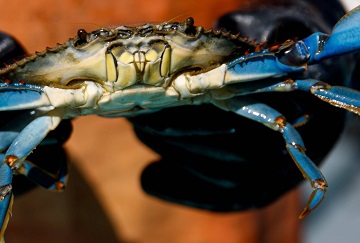
Maryland, Virginia race to save dwindling commercial fisheries in the Chesapeake Bay
Alarmed by plummeting stocks of commercial fisheries in the Chesapeake Bay, officials in Maryland and Virginia are scrambling to control invasive fish species that are causing at least part of the problem. On Thursday, Gov. Wes Moore asked the federal government to carry out an evaluation to determine if the situation amounts to a declaration of a “commercial fishery disaster,” which would qualify the state for federal assistance. In a letter to Secretary of Commerce Gina Raimondo, Moore said the state is increasingly concerned about the explosive growth of invasive fish species in the Chesapeake Bay, including blue catfish, flathead catfish and snakehead. >click to read< 09:11
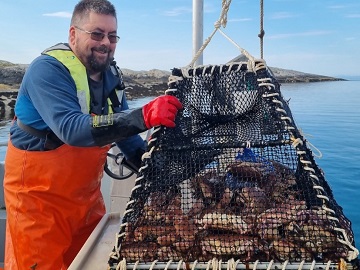
Fisherman Aims to Revolutionize Crabbing
Crab pots have had much the same design for many years. Now a Norwegian crab fisherman is making crab fishing both more efficient and less physically demanding. ‘The problem with traditional pots is that they normally have two entrances. When brown crabs crawl in, they quite quickly block the way for more crabs to enter. In practice, 30% of the volume in a traditional pot is not filled,’ said Jim Harald Sæternes, who is producing his pots under the Vikingteina brand name. He has an 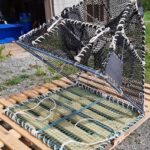 application for patent rights pending. ‘The pot has three entrances above each other on three levels. This means that even if there is a lot of crab in the pot, more can get in higher up. I’ve have had the idea behind these pots for a long time. But last year I decided to make something of it, and in February I established the company Proffteiner AS.’ Photos, >click to read< 21:09
application for patent rights pending. ‘The pot has three entrances above each other on three levels. This means that even if there is a lot of crab in the pot, more can get in higher up. I’ve have had the idea behind these pots for a long time. But last year I decided to make something of it, and in February I established the company Proffteiner AS.’ Photos, >click to read< 21:09
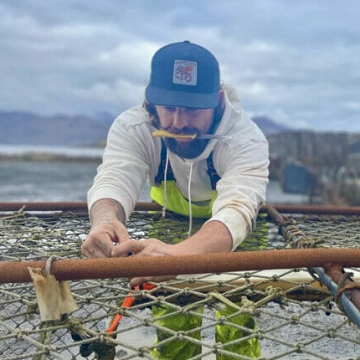
Small businesses affected by Alaska crab crash may be eligible for low-interest federal loans
The U.S. Small Business Administration is offering special disaster loans to some businesses hurt by the recent red king crab and snow crab closures. The SBA declared a disaster following a relief request from Gov. Mike Dunleavy for the crab fisheries closures in the Bering Sea and Bristol Bay. Along with U.S. Rep. Mary Peltola, Dunleavy requested a total of nearly $290 million from the federal government last year the estimated total ex-vessed loss for both fisheries since 2021. “We’re committed to providing federal disaster loans swiftly and efficiently, with a customer-centric approach to help businesses and communities recover and rebuild,” said SBA Administrator Isabella Casillas Guzman. >click to read< 15:12
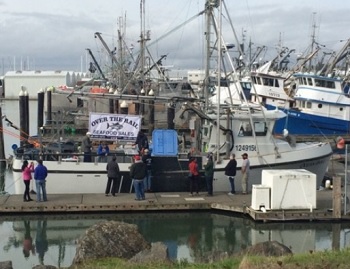
Crew Connections to provide commercial fishing networking on March 18
Commercial fishing vessel captains and owners will be recruiting new crew members to help with the summer fishing season from 11 a.m. to 2 p.m. Saturday, March 18 at Bellingham Dockside Market. Those interested are encouraged to bring their resume and ask questions. Whatcom Working Waterfront Coalition and Foundation is hosting the networking event, Crew Connections, in partnership from the port of Bellingham and Bellingham Dockside Market. Crew Connections will take place at the Fishermen’s Pavilion, 2599 S. Harbor Loop Drive in Bellingham. >click to read< 12:55
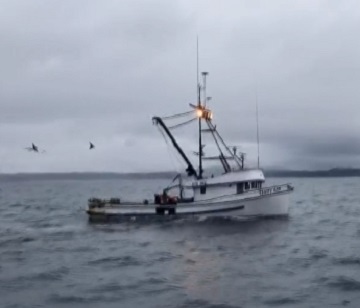
Imperiled Chinook salmon runs close ocean fishing off California, much of Oregon
The closure currently runs through May 15 and affects a length of the coast stretching from Oregon’s Cape Falcon, near Cannon Beach, south to the Mexican border. And it could be extended, officials said, as the imperiled species struggles amid a long-running drought. Further closures are likely, said Eric Schindler, head of the Oregon Department of Wildlife’s Ocean Salmon Program.“It doesn’t look good for this year or next year, and possibly the year after that, because of the drought conditions in California,” Schindler said. “We have to make sure that we’re not undermining our ability to produce salmon for the next go around.” Video, >click to read< 10:35

Good Indicators for Capelin Health, Despite DFO’s Doubling Down on Doom and Gloom
ST. JOHN’S, NL – Following DFO’s technical briefing on the 2J3KL capelin stock today, fish harvesters are optimistic that more favourable environmental conditions could lead to stock growth. “FFAW-Unifor is not surprised with the tone of today’s technical briefing by DFO Science, which have been consistently negative, irrespective of the data,” says FFAW-Unifor President Greg Pretty. “DFO Science is supposed to be an unbiased, transparent, and evidence-based in their approach. But most of them don’t spend more than a day on the water each year. They don’t see or appreciate the qualitative observations professional fish harvesters provide, and how we can support more robust and reliable data collection for capelin and other species. Instead of contributing to a productive relationship and more informed stock assessments, we have government scientists whose sole objective is to shut commercial fisheries down, regardless of facts,” says Dennis Chaulk, fish harvester from Bonavista Bay with over 28 years of experience on the water. >click to read< 19:17
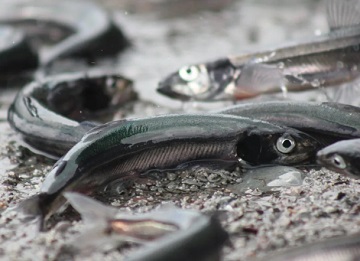
Positive signs in newest capelin stock assessment, but the tiny fish is still in the critical zone
“The capelin were in very good condition in the fall. That meant they’re longer and heavier than average. There’s lots of zooplankton, especially large zooplankton in the ecosystem,” said Hannah Murphy, a DFO research scientist and lead stock assessor. “We also had an increase in our larval abundance index this year, which is great. Larval survival is related to recruitment in capelin, so the more larvae we have and the more that survive, it’s better for the capelin stock.” Murphy said a full capelin acoustic survey happened over 2022, the first since 2019 due to the pandemic in 2020 and vessel availability in 2021. But the positivity ended there. This year, for the first time, the DFO has come up with a limit reference point for capelin. It’s set at 640 kilotons, the weight of fish in the water, and marks the boundary between the cautious and critical zones. >click to read< 17:32
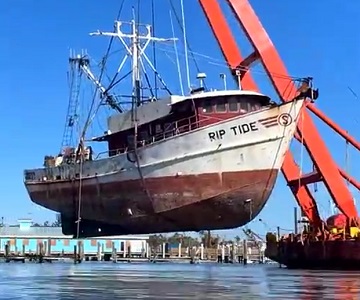
Last shrimp boat tossed ashore by Hurricane Ian on Fort Myers Beach back in the water
A crew from Resolve Marine works at Gulf Cove Trailer Park on San Carlos Island on Fort Myers Beach to get the shrimp boat, the F/V Rip Tide back in the water on Wednesday, March 15, 2023. It was the last shrimp boat tossed ashore by Hurricane Ian to get back in the water. Almost all of the shrimp boats in the Fort Myers Beach fleet were washed ashore by the category 4 hurricane. 27 boats were put back in the water by Resolve Marine. Six were damaged beyond repair. photos, >click to read<, Watch a time lapse video of the last shrimp boat tossed ashore by Hurricane Ian go in the water. >click to watch< 12:41
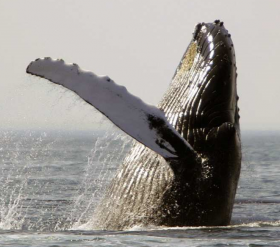
Whales win in federal fight over sablefish net permit
A federal judge has awarded summary judgment to environmental advocates over the National Marine Fisheries Service’s handling of endangered Pacific humpback whales that get tangled in fishing gear off the Pacific coast. U.S. District Judge James Donato ruled in favor of the Center for Biological Diversity, which sued the feds in 2022 over a permit that authorized the incidental taking of endangered humpback whales in a sablefish fishery without also putting plans into place to reduce the number of entanglements. The organization said the permit was unlawful because the service “did not first ensure that a take reduction plan for the whales had been developed or was being developed, as required.” >click to read< 11:05

Middletown Township Committee Demands Halt on Offshore Wind Energy Plans for NJ Coastline
The Middletown Township Committee unanimously passed a resolution that expresses support for a federal and/or state moratorium on offshore wind energy projects along the New Jersey coastline at the Monday, March 6 Township Committee Meeting. There are currently multiple wind turbine projects to construct offshore wind farms 10 to 20 miles off the New Jersey coastline in various stages of development. There are serious concerns with offshore wind energy, such as the recent increase in whale deaths, that have not been adequately addressed as these wind turbine projects continue to move through the planning stages. Wind farms could also have a negative impact on the commercial fishing industry’s vital offshore fishing grounds as well as New Jersey’s multi-billion tourism industry. >click to read< 10:27
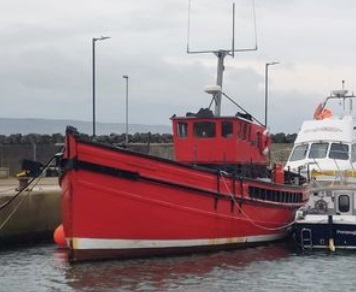
Rathlin woman ditched her house and lives on a converted 80 year old trawler
Those in search of new homes are becoming more open to the concept of alternative living. Charlotte Bosanquet is an example of those who do just that, as she now lives on the water in her very own 80-year old trawler boat. It all began when Charlie visited Rathlin Island and was in immediate awe of the location. “There was no accommodation, so we looked at other ways of living and that’s when we found the boat. We put in an offer but didn’t expect for it to be accepted but in February 2016,  we secured it. I was so excited for the first month I could hardly sleep. The boat is a 1932 wooden trawler, so it needed a lot of work done to it. It was leaking a little, the living space wasn’t so nice and it needed work. But the engine was in good shape”. Photos, >click to read< 09:25
we secured it. I was so excited for the first month I could hardly sleep. The boat is a 1932 wooden trawler, so it needed a lot of work done to it. It was leaking a little, the living space wasn’t so nice and it needed work. But the engine was in good shape”. Photos, >click to read< 09:25
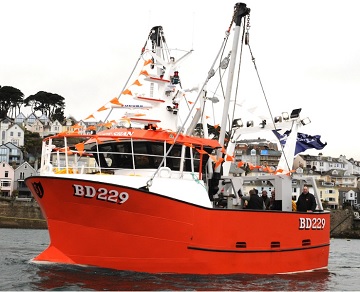
Taking under 10 Metre Trawlers to a New Level
Built for North Deven fishing company S&J Trawlers, F/V Our Frankie Shan is the latest and most advanced in a series of under ten-metre trawlers that have come from the C Toms & Son yard. F/V Our Frankie Shan is an SC McAllister design by Ian Paton and draws on the success of previous trawlers built to the same pattern, starting with F/V Saxon Spirit, also built at C Toms in 2018m and followed by Claude Henry and Simon Paul – and with another soon to be completed 10m trawler under construction. This latest vessel is designed as a multi-purpose fishing vessel capable of alternating trawling with either doors or beam gear, and scalloping. with the deck laid out for a quick switchover between fishing methods. Photos, >click to read< 08:07

MPA’s: Scottish island faces being ‘wiped out’ by SNP’s green crackdown on fishing in its rich waters
Tiree, population 653, is known as the Hawaii of the North but islanders say it will become ‘non-viable’ if a Highly Protected Marine Area is imposed by Holyrood ministers. Now the risk is that a new environmental protection area would kill the island’s fishing boat trade, which is one of the few economic growth sectors. Having gone from two boats in 1995 to nine boats today, which provide 20 full time jobs, the annual catch of crab and lobster has a value of £1million. Tiree fisherman Neil MacPhail said: “If this (HPMA) landed on top of us we would be wiped out overnight, with one stroke of the pen on a chart.”He added: “My boat alone puts food on the table for eleven people. One boat’s worth of economic impact is huge in a community such as Tiree. It’s the only industry in the island which has genuinely bucked the depopulation trend.” >click to read< 18:07
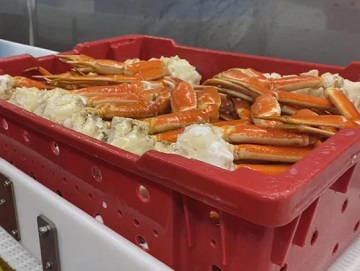
Price outlook diverges for Canada’s top 2 seafoods – Snow crab prices plunged by 60 % in 2022
Canada’s lobster industry is poised to claw its way out of a down year, say analysts, while unsold snow crab stuck in cold storage remains an anchor dragging on the bottom line. Snow crab sales sank and prices plunged 60 per cent in 2022, thanks in part to U.S. consumers who stayed away from luxury seafood as they were battered by inflation. Lobster also took a hit last year, with prices down 30 per cent. The value of Canadian live lobster exports dropped as well, but volumes actually ticked up slightly. Kelly Zhuang of World Link Food Distributors in Nova Scotia says 800 tonnes of live lobster is flown to China from Halifax and Moncton per week. And more charters are expected.>click to read< 13:55
Athearn Marine Agency Boat of the Week: 36′ Northern Bay Lobster/Tuna, portside haul,1200HP MANN Diesel
 To review specifications, information, and 11 photos’, >click here<, To see all the boats in this series >click here< 11:59
To review specifications, information, and 11 photos’, >click here<, To see all the boats in this series >click here< 11:59
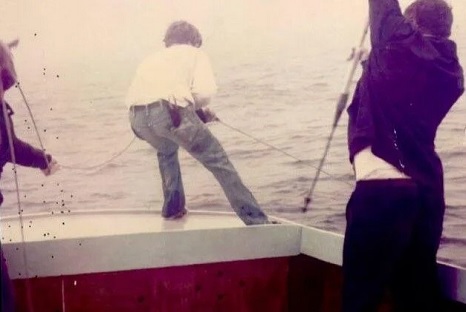
Before tuna fishing was ‘wicked’
Before tuna fishing became “wicked,” local fishermen had been capturing and hauling giant bluefin tuna off the coast for years. The dangerous task has gone on to gain notoriety with the popular show “Wicked Tuna,” but the history of catching giant bluefins has deep roots in Newburyport going back generations. Newburyport residents Lee and Bob Yeomans are both experienced at fishing for tuna and hand-lining. “My husband, Bob, and I have a goal to preserve the history of this very dangerous, challenging way of capturing giant bluefin tuna,” Lee Yeomans said. She is leading a project to capture the stories of fishermen. Eighty-eight-year-old Newbury resident Carl Beal Jr. wrote of his experience fishing for giant bluefins with his father off Newburyport in summer 1948 in “Tuna Fishing Peril,” one of many stories about the history of local tuna fishing. >click to read< 11:02
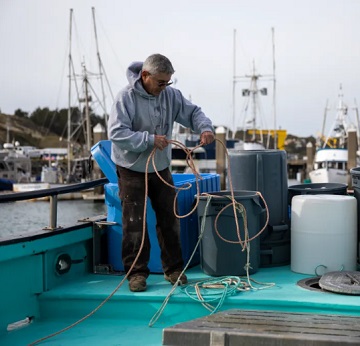
No California salmon: Fishery to be shut down this year
Last year, California’s commercial and recreational fishing fleet, from the Central Coast to the Oregon border, landed about 300,000 salmon. But this year, Davis and other salmon anglers won’t be fishing for salmon at all. Last year, the industry’s economic value was an estimated $460 million for fish sales and related businesses, including restaurants, tackle shops, private fishing guides, campgrounds and other services. Salmon season usually runs from May through October. Only in two previous years — 2008 and 2009 — has California’s salmon season been shut down completely. That closure came as the numbers of spawning fish returning to the Sacramento River, the state’s main salmon producer, crashed to record lows. Now California’s Chinook runs have collapsed again. >click to read< 09:54






